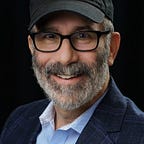COVID-19 Answers a Long-Debated Cognitive Question
Time to Use Your Head? Think Again.
Here in the US, we’re losing the fight against coronavirus. That’s a strange turn of events, especially since slowing its spread can be accomplished with simple, low-tech approaches such as physical distancing, hand washing, and masks. And yet, as infection rates mount and statistics of tragic losses stare us in the face every day, the virus continues to upend economic stability, cause social isolation and diminish our health. Private and public health communicators must take notice.
Why are we doing so badly? First and foremost, we’re terrible at conveying what needs to be done in simple, straightforward terms that resonate with people. Like the national political divide, the choices people make that contribute to public-health strength or surrender are not based in fact or science. Here, emotions rule the conversation.
Nations with greater confidence in science and their medical leaders fare better in flattening the contagion curve. Yet in the US, too many refuse to distance or mask-up, and when we lower our masks, we lower our collective guard; everyone is placed at risk. Clearly, there is a steady drumbeat of print headlines and broadcast and social news coverage. It’s not working.
We need a national approach to COVID-19 public health protection that appeals not only to the intellect, but also to the gut. Individuals’ decisions about COVID-19 response are set by personal opinion, ingrained behavior, culture and emotion. This is why Dr. Anthony Fauci holds our attention. His plain-spoken approach to communicating issues and personal appeal secures respect.
Too often, when policy officials and health economists outline COVID-19 dangers, or scientists and biopharma leaders discuss a vaccine’s progress with facts and numbers, people are overwhelmed and numbed. Knowledge, intellect and rationale are diluted by “this feels right for me.” It’s time that leaders in business, public health and life science start to recognize that speaking to people’s heads often falls on deaf ears. It’s about time we engage their hearts — emotion and empathy matter.
Guess what? Organizational management scientists and business experts came to that conclusion, too. In an article published in Science Daily in May 2015, researchers from Rice University and Columbia University explored this question: “Do you see ‘the self’ in your brain or your heart? Decision-making differs.” Hajo Adam, PhD, assistant professor of management, Jones Graduate School of Business at Rice University, wrote:
“We view our research as a first step toward reviving the debate about which part of our body contains the seat of the self — a debate that dates back to the ancient Greek philosophers. Our findings demonstrate not only that the preference for the brain versus the heart as the location of the self systematically depends on a person’s self-construal — meaning the perceptions that individuals have about their thoughts, feelings and actions in relation to others — but also that the location of the self has important implications for people’s opinions on contentious medical issues as well as prosocial contributions.”
Public health and product innovators need to ask why they are losing the debate around COVID-19 safety and vaccine development expectations.
From the climbing infection rates to communities flaunting common-sense scientific advice, it appears that the debate is being won by data naysayers. The fact is people are weary and have little patience for cooling their heels when it comes to seeing friends or waiting for a proven vaccine. Like the combat soldier who tires of wearing a flak vest and helmet, too many are lowering their masks and abandoning physical distance. The head says, “soldier on and be vigilant. COVID-19 is a hidden killer.” But hearts say, “I’m bored, and enough is enough. Time to go out and be social.”
Contributing perspective to Time magazine’s 100 Most Influential People of 2020, TV talk show host Jimmy Kimmel hones in on why Dr. Tony Fauci has become the iconic American hero. Dr. Fauci goes to the heart of an issue. He speaks to the people:
“Dr. Fauci doesn’t sugarcoat his words and refuses to be pressured by politicians. He delivers the truth, as difficult as it may be to hear, earnestly and with one goal: to save lives. His courage and candor have earned our trust. We are all fortunate to have a man of his wisdom, experience and integrity to help us navigate these difficult waters.”
When was the last time a biopharmaceutical executive secured the level of communal attention that Dr. Fauci commands? There have been moments when industry powerhouses held our collective respect. Remember James Burke of Johnson and Johnson during the Tylenol crisis? How about Roy Vagelos, MD, chair emeritus of Merck taking on River Blindness in Africa? Yes, those were different times; times when people extended greater trust to the sector. However, these health communicators had our attention because they discarded scripts. They spoke to the issues straight from and to the heart.
Dr. Fauci doesn’t seek to own the spotlight. He speaks from the heart in a way that people value — and that means they hear him.
We need to learn from his approach. We need to communicate in simple, clear terms that convey information and illustrate the reasons for doing what we ask. Wear a mask to save the life of friends, loved ones and neighbors. Be social, but do it with physical distance because we respect everyone’s life, liberty — and health. Respect our frontline heroes by doing your part to keep infection rates low. If each of us can find the courage to do the right thing and speak from the heart about why, maybe in 2021, America will be Time’s “Person of the Year.” It’s possible.
